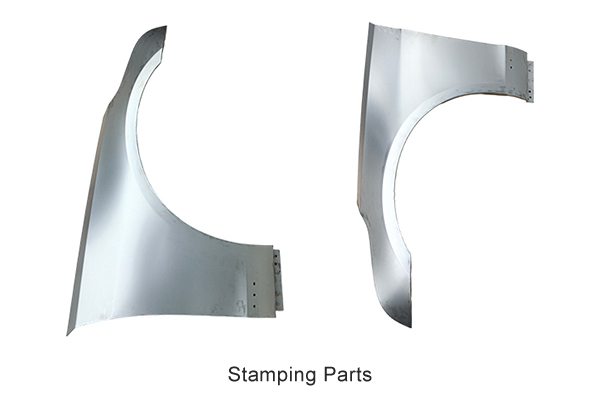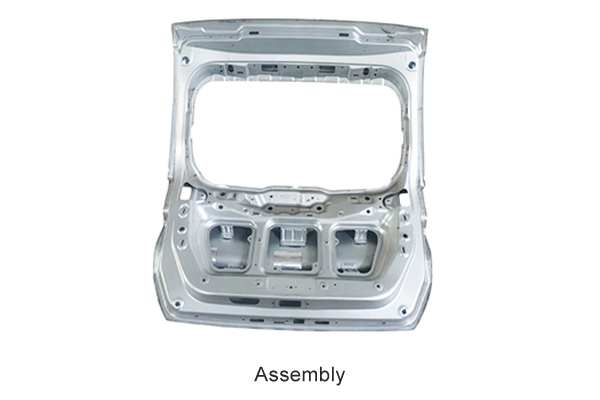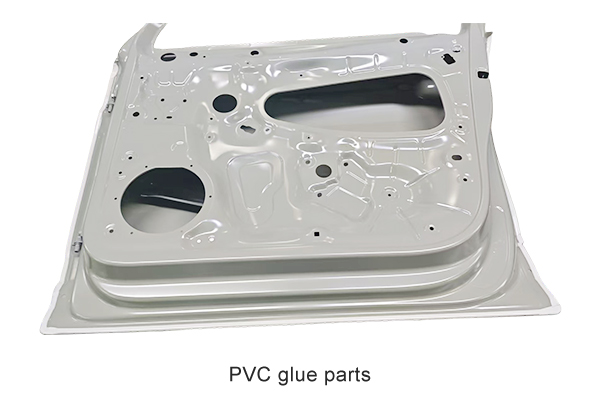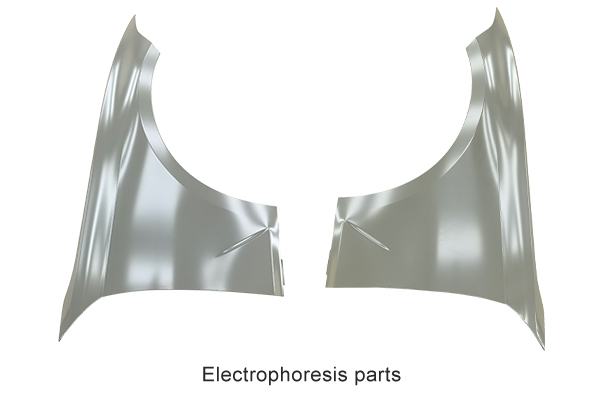What role does PVC coating production service for auto parts play in reducing noise in the car?
Release Time : 2025-06-19
The NVH (Noise, Vibration, Harshness) performance of a car is one of the important indicators for measuring vehicle comfort. As consumers' requirements for driving experience increase, automakers are paying more and more attention to how to reduce noise in the car through various means. As an effective protective and sound insulation material, PVC coating production service plays an important role in reducing noise in the car.
1. Absorbing vibration energy
PVC coating production service has good elasticity and flexibility, which enables it to effectively absorb and disperse vibration energy caused by the engine, tires or uneven road surface. When the vehicle is driving, the chassis and other metal parts will vibrate due to external impact. If these vibrations are not controlled, they will be transmitted to the interior of the car through the body, forming uncomfortable noise. PVC coating can play a buffering role in the vibration transmission path, reducing the transmission of vibration to the interior of the car, thereby effectively reducing the noise level in the car.
2. Significant sound insulation effect
In addition to absorbing vibrations, PVC coating production service also has excellent sound insulation performance. PVC coating can form a dense protective film that covers the metal surface and prevents sound waves from entering the car through the metal. Especially in key parts that are prone to noise, such as the chassis and wheel arches, the application of PVC coating production service can significantly reduce the intrusion of external noise, including wind noise, road noise, and engine noise, creating a quieter and more comfortable driving environment for passengers.
3. Filling gaps and smoothing surfaces
In the process of automobile manufacturing, there are inevitably tiny gaps or uneven places between many parts. These tiny defects not only affect the appearance, but also become channels for noise transmission. PVC coating production service can be evenly covered in these areas by spraying or dipping, filling gaps and smoothing the surface, thereby reducing the noise generated by air flow. For example, using PVC coating production service on the edge of the door, the trunk lid, etc., can effectively seal the gap and prevent wind noise from entering the interior of the car.
4. Improve the NVH performance of the whole vehicle
PVC coating production service is not limited to the application of a single component, but can be widely used in different parts of the entire body structure. By treating multiple key areas with PVC, such as the chassis, wheel covers, engine hood, etc., the NVH performance of the whole vehicle can be improved in all aspects. This comprehensive sound insulation and shock absorption measure can not only reduce the noise directly transmitted from the outside, but also suppress the resonance phenomenon between the components in the car, further optimizing the quietness of the car.
5. Strong durability and long-term stable performance
High-quality PVC coating production service materials have excellent weather resistance and anti-aging properties, and can maintain their original sound insulation and shock absorption effects even after long-term exposure to harsh environments. This means that automotive parts treated with PVC can continue to provide a high level of noise control capabilities throughout their service life without frequent maintenance or replacement, ensuring that drivers and passengers always enjoy a quiet driving experience.
In summary, PVC coating production service plays an important role in reducing noise in the car in many aspects. It effectively reduces the impact of external noise on the interior of the vehicle by absorbing vibration energy, enhancing sound insulation, filling gaps and smoothing surfaces, and significantly improves the NVH performance of the vehicle. At the same time, the durability and environmental protection characteristics of PVC coating production service materials make it an ideal solution for automotive parts protection and noise reduction.
1. Absorbing vibration energy
PVC coating production service has good elasticity and flexibility, which enables it to effectively absorb and disperse vibration energy caused by the engine, tires or uneven road surface. When the vehicle is driving, the chassis and other metal parts will vibrate due to external impact. If these vibrations are not controlled, they will be transmitted to the interior of the car through the body, forming uncomfortable noise. PVC coating can play a buffering role in the vibration transmission path, reducing the transmission of vibration to the interior of the car, thereby effectively reducing the noise level in the car.
2. Significant sound insulation effect
In addition to absorbing vibrations, PVC coating production service also has excellent sound insulation performance. PVC coating can form a dense protective film that covers the metal surface and prevents sound waves from entering the car through the metal. Especially in key parts that are prone to noise, such as the chassis and wheel arches, the application of PVC coating production service can significantly reduce the intrusion of external noise, including wind noise, road noise, and engine noise, creating a quieter and more comfortable driving environment for passengers.
3. Filling gaps and smoothing surfaces
In the process of automobile manufacturing, there are inevitably tiny gaps or uneven places between many parts. These tiny defects not only affect the appearance, but also become channels for noise transmission. PVC coating production service can be evenly covered in these areas by spraying or dipping, filling gaps and smoothing the surface, thereby reducing the noise generated by air flow. For example, using PVC coating production service on the edge of the door, the trunk lid, etc., can effectively seal the gap and prevent wind noise from entering the interior of the car.
4. Improve the NVH performance of the whole vehicle
PVC coating production service is not limited to the application of a single component, but can be widely used in different parts of the entire body structure. By treating multiple key areas with PVC, such as the chassis, wheel covers, engine hood, etc., the NVH performance of the whole vehicle can be improved in all aspects. This comprehensive sound insulation and shock absorption measure can not only reduce the noise directly transmitted from the outside, but also suppress the resonance phenomenon between the components in the car, further optimizing the quietness of the car.
5. Strong durability and long-term stable performance
High-quality PVC coating production service materials have excellent weather resistance and anti-aging properties, and can maintain their original sound insulation and shock absorption effects even after long-term exposure to harsh environments. This means that automotive parts treated with PVC can continue to provide a high level of noise control capabilities throughout their service life without frequent maintenance or replacement, ensuring that drivers and passengers always enjoy a quiet driving experience.
In summary, PVC coating production service plays an important role in reducing noise in the car in many aspects. It effectively reduces the impact of external noise on the interior of the vehicle by absorbing vibration energy, enhancing sound insulation, filling gaps and smoothing surfaces, and significantly improves the NVH performance of the vehicle. At the same time, the durability and environmental protection characteristics of PVC coating production service materials make it an ideal solution for automotive parts protection and noise reduction.








